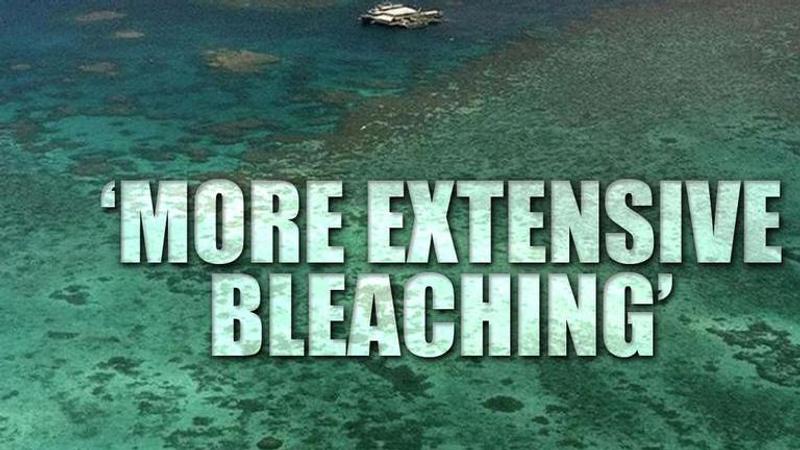Published 17:17 IST, June 4th 2020
Australia's Great Barrier Reef suffered its most extensive coral bleaching event in March
Director of Australia ARC Centre of Excellence for Coral Reef Studies at James Cook University, Terry Hughes, said February 2020 was hottest month on record.

Scientists in Australia have revealed in a study that The Great Barrier Reef has suffered one of the most extensive coral bleaching events in March raising concerns as the reefs recovered less each time after the process. This would be the third extensive bleaching in over the last five years. Director of the ARC Centre of Excellence for Coral Reef Studies at James Cook University, Terry Hughes, said that February 2020 was the hottest month on record in the Great Barrier Reef since records began in 1900, as per a news agency report.
In what could be said record-breaking temperatures, in 2020, all along the length of the Great Barrier Reef there wasn't a cool portion in the north, or a cool portion in the south this time around, Hughes reportedly said. The whole Barrier Reef recorded the temperatures so hot that the bleaching phenomenon intensified to maximum this year, he added. The impact being, the coral reefs would not recover the same way it did five years ago due to the damage, or more alarmingly its recovery rate about thirty years ago, Hughes was quoted as saying. If the bleaching didn’t stop, Hughes reportedly said, the Great Barrier Reef will be completely destroyed.
'Cloud brightening' experiment
Earlier, last month, Scientists carried out a "cloud brightening" experiment in an early-stage trial on the Great Barrier Reef, which could become a futuristic way to protect the world's largest reef against global warming, as per the reports. The warmer seas, as per the scientists, damaged the health of the corals and the climate crisis threatened its existence.
In a rare experiment, scientists dispersed the tiny salt crystals obtained from the oceans into the atmosphere through the boat-mounted cannons. The crystals then blended with the low-lying clouds that reflected the sunlight away from the oceans, thus leading to a drastic reduction of temperature in the seawater below, according to the reports. With the experiment, the researchers aimed to narrow the bleaching stress by at least 70 per cent.
The lead scientist on the project, Daniel Harrison from Southern Cross University, was quoted as saying that the trials were “really, really encouraging”. He further added it was the first of its kind to implement the technique to enhance the health of the coral reefs.
Updated 17:18 IST, June 4th 2020




